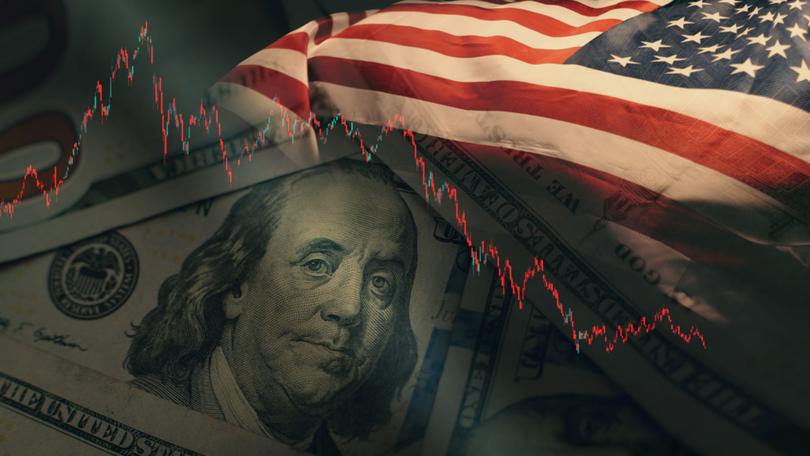CNBC: US election won’t be an ‘uneventful event’ for global markets, UBS chief says
The outcome of upcoming elections in the world’s leading economy is set to ripple into global markets no matter who clinches leadership of the White House, UBS head Sergio Ermotti says.

The outcome of upcoming elections in the world’s leading economy is set to ripple into global markets no matter who clinches leadership of the White House, UBS head Sergio Ermotti told CNBC on Wednesday.
“The outlook for the fourth quarter is clearly still somehow influenced by the uncertainties we see on the macroeconomic and geopolitical front, we have the upcoming elections in the U.S., which of course is not going to be an uneventful event,” he told CNBC’s Annette Weisbach, as the Swiss bank’s third-quarter profit print crushed analyst forecasts.
Under UBS’ geographic breakdown, the U.S. is filed under the key Americas region, which has emerged as critical to the bank’s global wealth management performance, netting in $2.84 billion in revenues in the third quarter.
Sign up to The Nightly's newsletters.
Get the first look at the digital newspaper, curated daily stories and breaking headlines delivered to your inbox.
By continuing you agree to our Terms and Privacy Policy.“We do expect, no matter who wins and the outcome, we do expect some market movements. And it remains to be seen how investors will react,” Ermotti added.
Markets are bracing as voters flock to the polls on Nov. 5, with the U.S. holding both the world’s foremost reserve currency and the largest stock exchange by market capitalization. Already, electoral jitters and expectations of further interest rate cuts from the U.S. Federal Reserve have steered investors to retreat to gold, which rallied to a fresh record on Wednesday. Yields on fellow safe-haven asset, the 10-year U.S. Treasury, were meanwhile surrendering some gains early on Wednesday after marching to a three-month high at the start of the week.
“None of these outcomes for us is a growth positive. Under a [Donald] Trump presidency, we see that as being inflationary on the back of his focus on immigration and on tariffs. But we don’t see any outcome as being particularly growth positive. And that’s why bonds have been behaving the way they have been,” Arun Sai, senior multi asset strategist at Pictet Asset Management, told CNBC’s “Squawk Box Asia” on Tuesday, noting markets have “more or less priced in a Trump presidency on bonds.”
Democratic candidate and Vice President Kamala Harris is seen as a spiritual successor of current White House leader Joe Biden, whose one-term economic legacy was defined by the Inflation Reduction Act and the CHIPS and Science Act. The first-mandate policies of Republican contender and former President Donald Trump are meanwhile remembered for reshaping trade ties with China through a spate of tariffs. European leaders are expecting a degree of American trade protectionism, no matter who prevails.
Locked in a tight race, both nominees are nevertheless likely to implement policies that deepen the U.S.′ already vast $1.8 trillion budgetary deficit, which the International Monetary Fund estimates could reach 7.6% of the nation’s GDP by the end of the year. The Congressional Budget Office forecasts that the deficit could amount to $2 trillion in 2024 — equivalent to 7% of GDP this year — and $2.8 trillion by 2034.
“Generally speaking, it’s our concern that public debt and government debt is increasing all over in the world,” Ermotti noted. “So it’s not just a U.S.-specific matter. I believe we will have to analyze the situation exactly when it comes. And I do not really expect any change immediately, but it’s going to play out over time.”
Financial regulation is likely to be “more proactive and involved” in the event of a Harris victory, after “heightened scrutiny, increased intervention, and a push to expand oversight of nonbank financial companies” characterized the Biden administration’s approach to banking, T. Rowe Price’s Associate Analyst Gilad Fortgang noted in September.
The Biden government attended to a mini-banking crisis last year, amid the collapse of Silicon Valley Bank and Signature Bank. At the time, Biden urged regulators to reinstate safeguards for banks with assets between $100 billion and $250 billion and to strengthen supervision over financial institutions.
Asked how UBS is positioning itself to wade through the post-electoral volatility, Ermotti said, “We stay close to clients, we help them navigate these uncertainties. From a bank’s standpoint of view, we are well-positioned to navigate any environment. We have a very strong capital [and a] very strong balance sheet position that allow us to stay close to clients.”
Originally published on CNBC
